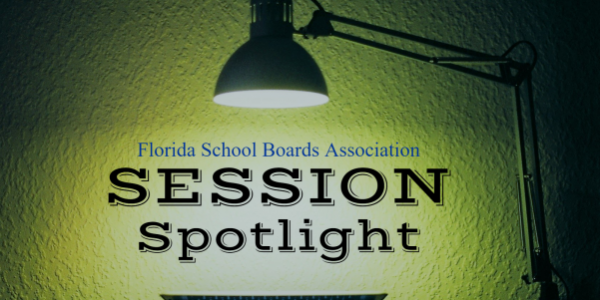Today, legislators made some progress in resolving the differences between the House and Senate versions of the FEFP funding bills . As we reported yesterday, the only significant difference between the House and Senate versions of their funding bills was the source of funds used to increase total FEFP funding by $215 million — the amount needed to reach the goal of increasing total funds per student by $100. The House version maintained the roll back millage rate for Required Local Effort (RLE) and used both recurring and non-recurring state funds to produce the $215 million increase. Meanwhile, the Senate version allowed for a slight increase from the roll back rate to produce about $143 million and added recurring state funds to produce the $215 million. Today, the Senate agreed to abandon the slight increase in the roll back rate and made some other adjustments so that the total funding amounts align with the House. As a result, the FEFP Funding Summaries for both chambers are now identical (We have posted the revised Senate FEFP Funding Summary on our 2017 Legislative Session page along with the original Senate FEFP Funding Summary and other related documents).
Even though the FEFP funding totals are aligned, several significant sticking points remain. One area of disagreement centers on the Senate decision to override the Governor’s veto of the FEFP and about $75 million in higher education projects. The Senate override of the veto of the FEFP was done as a safety measure to ensure that at least some FEFP funding – even inadequate funding – would be available to school districts if the chambers were unable to reach agreement on new FEFP funding during the Special Session. The override of the veto of the higher education projects was done because this funding has been a priority of the Senate. The Senate has asked that the House follow suit by taking similar override votes but Speaker Corcoran has announced that House does not plan to do so. Because of this and other concerns, the differences between the House and Senate are far from settled.
In other important action today, the Senate considered several amendments to its main FEFP funding bill – SB 2500-A – in the Senate Appropriations Committee and, later, on the chamber floor. Senators Simmons, Thurston, and Farmer proposed amendments that would further augment FEFP funding and/or revise provisions in HB 7069. Of particular interest, Amendment 166280 by Senator Farmer sought to provide $100 million to allow school districts to provide wrap-around services and other supports to persistently low performing schools. Amendment 372070 by Senator Farmer sought to redirect about $370 million of the funding provided in HB 7069 to the FEFP (eliminating funding that would, otherwise, be provided for the Best and Brightest Teachers and Principals program and for the Schools of Hope initiative). Several Senators expressed support for one or more of these amendments. Some proposed amendments were withdrawn and others did not pass. Even so, Senator Simmons, Senator Thurston, Senator Farmer, and Senator Garcia were particularly strong advocates and we encourage you to contact them to thank them for their advocacy on these issues.
The chambers will continue to work through these issues tomorrow – the last scheduled day of this Special Session. The schedule for Friday is provided below. As always, please remember that you may follow floor activities via live webcast on the Florida Channel and, for real-time updates, please click HERE to access our Twitter feed.
[toggle title=”Coming Up on Friday“]
The Senate will be in Session (10:00 am – completion; Senate Chamber) to consider the following items and others:
SB 2500-A – Appropriations by Latvala
SB 2502-A – Implementing SB 2500A by Latvala
The House will be in Session (10:30 am – completion; House Chamber) to consider the following item and others:
HB 3-A – Florida Education Finance Program by M. Diaz
[/toggle]







